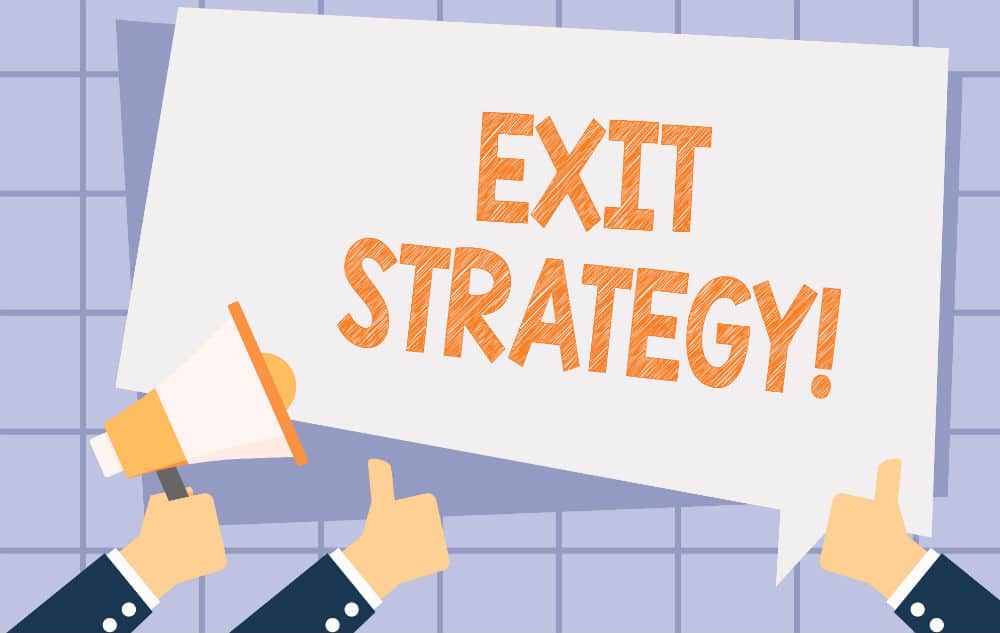You may be the sole owner of your business, have a partner or a family-owned business. In any of these types of ownership structures, savvy business owners will consider their options for exiting the business soon after they start it. There are some similarities, as well as differences, with exit strategies depending on how the business is set up.
Remember, it is important to understand the value of your business before you consider selling it. Here are a few exit strategies to keep in mind based on the type of business.
Exit Strategies For Your Type of Business
Sole Proprietorship
When you solely own a business, there are a few exit strategies available to you. These exit strategies include:
- Sell the business to a competitor. A competitor may want your book of business, products, processes and other assets. That will give them a bigger market share, built-in employees (if they need the additional staff), plus the assets in your business. Keep in mind that a competitor may already have the staff necessary to run the business, even with additional clients. Your employees may or may not be needed in the new company structure.
- Sell the business to a neutral third-party. There are always entrepreneurs looking for new opportunities. Selling your business to someone who is looking to get into your industry may provide a win-win scenario for both of you. They may not want to ‘boot-strap’ a business from the ground floor. By having customers, processes, assets and employees, an entrepreneur can avoid a lot of the struggles associated with a start-up business.
- Sell the business to employees. This option may be more appropriate for companies that have been in business for many years and have long-time employees. Those employees tend to be very loyal. They also know your processes and procedures very well and have seen the good times and bad. One or a group of employees might consider purchasing your business in order to keep it running rather than seeing it sold.
Partnership or Co-Owning Business
If you own the business with one or multiple partners, your exit strategies are different. It’s likely that you and your partners have an exit agreement, which would have been in place when the business was established. If one partner wants to leave the company or can no longer work, is getting a divorce, passes away, etc., the other partners have the opportunity to buy out the departing partner.
This type of agreement is put in place for partnerships so the remaining partners don’t have a new partner that they were not anticipating such as a spouse, ex-spouse, etc. An attorney can help draw up this agreement when the business is formed to protect all partners.
Family Business
Regardless of the type of business entity (sole proprietorship, LLC, or corporation), a family business has a different dynamic where there is an owner and employees. In a family business, some of the employees are likely family members, whether a spouse, children, siblings or other family. These are people you may see around the dinner table in addition to the boardroom table.
Before an owner considers selling the business to a competitor or another party, it’s likely that he/she will sell the business to other family members. It’s possible that an exit agreement is established at the onset of the business, but it may take time for an owner to see which family members are interested in being a part of the business, then who stands out as someone who could take over the business. This is especially true when an owner’s children are younger. They may need to finish school or find their own way before becoming a part of the family business.
However, it’s important to establish some type of exit strategy, knowing that it could change over time, to avoid an internal family battle if something were to happen to the owner.
Varying Business Structures; Same Great Support
A Pet Butler Franchise Owner may be a sole proprietor, a partnership, or a family business, just to name a few. Regardless of the business structure, a Pet Butler Franchise Owner might be in business for themselves, but not by themselves. From software to customer administration to call center operations, Pet Butler provides the support a Franchise Owner needs.
Bob and Janet Dailey, Pet Butler Franchise Owners in Phoenix, Arizona, became Franchise Owners because they knew they would be working within a larger structure. They are a family business; both of the Dailey’s daughters are also involved. Janet Dailey noted, “They handle things that they can do on their schedule a couple times during the day.” They will take a bigger role as the business grows.
Whether you are looking for a new venture on your own, with a partnership, or family members, Pet Butler provides a turn-key franchise opportunity to help your business grow. Learn more about Pet Butler by calling 844-777-8608 or email at us franinfo@petbutler.com.




